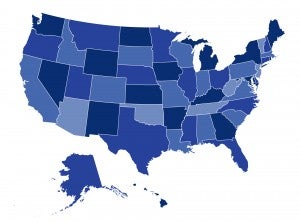Insurer Participation in ACA Marketplaces: Federal Uncertainty Triggers Diverging Business Strategies

A reliable indicator of health insurance markets’ stability is insurer participation, including the number of insurers that elect to sell individual plans and whether they participate over subsequent years. In a recent analysis for the Commonwealth Fund, CHIR experts looked at insurer participation in the state-based Affordable Care Act (ACA) marketplaces from 2014 to 2018, which sheds light on how state marketplaces have maintained competition despite uncertainty about the law’s future.





